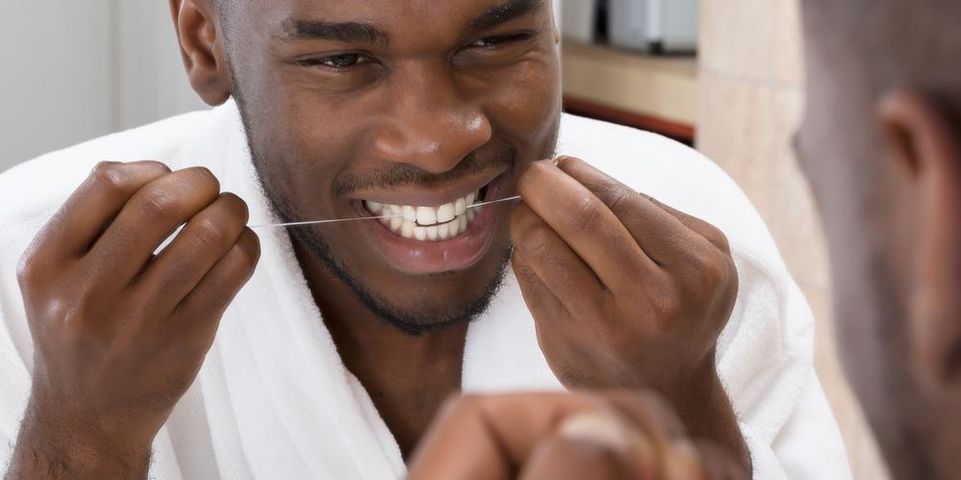
How important is flossing to prevent cavities, and how should it be done? Proper brushing and flossing are crucial for oral health, which is why family dentists and periodontists alike still recommend the practice. Here is a little more information about brushing and flossing, and how to avoid common errors.
A Guide to Flossing & Proper Techniques
How Should You Be Flossing?
The American Dental Association (ADA) recommends using at least 18 inches of dental floss, and then winding each side of floss around your middle fingers to create a stable cleaning surface. Next, you should run the dental floss gently between each contact of your teeth using a light rubbing motion. As you move from tooth to tooth, you should advance the floss by winding additional lengths of it around one of your fingers while you loosen it on the other. This action keeps the dental floss clean, preventing the spread of infection.
You should advance the floss as far along the side of the tooth as you can comfortably. If you have a dental implant, the floss should be wrapped around the tooth and then pulled gently back and forth to clean the entire portion of gum tissue surrounding the post. By flossing carefully, you can reduce your mouth’s bacterial numbers, preventing cavities.
What Are Common Mistakes People Make?
 One of the most common mistakes people make is using too much force when they floss. Dental floss should be moved gently around the gum tissue, since the gums are delicate and vascular. Often, people forget to floss the space between their gums and their final back molar, allowing buildup to accumulate. When you are finished flossing, rinse your mouth carefully to prevent cavities.
One of the most common mistakes people make is using too much force when they floss. Dental floss should be moved gently around the gum tissue, since the gums are delicate and vascular. Often, people forget to floss the space between their gums and their final back molar, allowing buildup to accumulate. When you are finished flossing, rinse your mouth carefully to prevent cavities.
Are you interested in flossing more effectively and preventing cavities? Schedule an appointment at High Point Smile Dentistry. As a trusted North Carolina dental practice, these professionals help their patients create customized treatment plans to proactively resolve a long list of issues, including cavities and dental decay. Learn more about their approach to superior dentistry by visiting their website or calling (336) 884-4000.
About the Business
(490 reviews)
Have a question? Ask the experts!
Send your question

